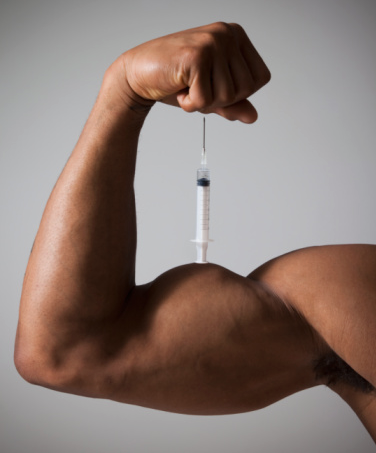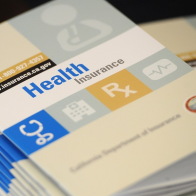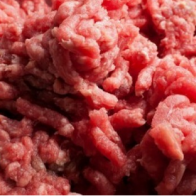 It’s relatively rough growing into an adult. Hormones kick in at different times, making it increasingly difficult for some boys, and now more girls in particular, to wait patiently while their genes express themselves.
It’s relatively rough growing into an adult. Hormones kick in at different times, making it increasingly difficult for some boys, and now more girls in particular, to wait patiently while their genes express themselves.
In a recent study, researches claim that there is an increase in adolescent use of protein powders and steroids. The study — published Monday in Pediatrics, a journal of the American Academy of Pediatrics — suggests that there’s reason for concern as an exceedingly amount of young boys are open about their use of supplements and powders to increase their muscle size.
In a culture of bigger, stronger, and faster athletes, action heroes, and weaponry, one shouldn’t be all that surprised with these findings. But interestingly enough, as more women find avenues to earn a living in athletics, combat, and entertainment fields that require cartoonish figures (butt models and video vixens), substance abuse is translating smoothly into lives of girls also.
“First thing to do is try to educate and say, ‘You know, I’m glad you are active and playing sports and trying to be happy. Just remember most kids don’t need protein supplements, or even energy drinks because they are getting the electrolytes in their diet,'” Dr. Jennifer Shu, a pediatrician in Atlanta, says. “It’s good for parents to be aware because they might think it’s good and buy teens these protein powders.”
Education seems to be the theme throughout the report, but it’s hard to reach children rationally once they have ingrained images and bought into advertisements that suggest to teens that their dreams of being muscular or having a tight ass — and hence a desirable and attractive appearance — are a pill, powder or, basically, a purchase away.
Researchers looked at a diverse group of about 3,000 teens who were attending urban middle or high schools in the Minneapolis/St. Paul metropolitan area during the 2009-2010 school year. Of the study subjects, 46.8% were male and 53.2% were female. The average age was 14 years old.
Thirty-five percent of boys reported using protein powders; 6% reported using steroids; and two-thirds reported changing their diet to increase muscle tone or size. Twenty-one percent of girls reported using protein powders; 4.6% used steroids; 5.5% used other muscle-enhancing substances. Twelve percent of boys and 6% of girls said they used three or more of these substances and/or behaviors.
Also, we must keep in mind that most protein powders are not federally regulated, and since steroids are a schedule 3 drug, doctors cannot assist teen steroid use — which, in turn, means, more than likely out of fear and shame, teens will look to their peers for guidance while ingesting or injecting the substance.
Researchers were careful to stay away from making a clear correlation between some athlete’s use of performance enhancing drugs — and their subsequent profiting off said enhancements — and the rise in adolescent supplement use, but it’s not a wild conjecture.
“As their idols have increased in size they are continually pushed to get stronger, bigger and faster … there is that trickle down effect,” says Dr. Nicholas Fletcher, an assistant professor of orthopaedic surgery at Emory University School of Medicine who treats teenagers.
It seems this issue is not going away anytime soon, so how do we, as a culture, find a way to curb the use of performance enhancement supplements in developing youth?
Your guess will probably be better than mine …






